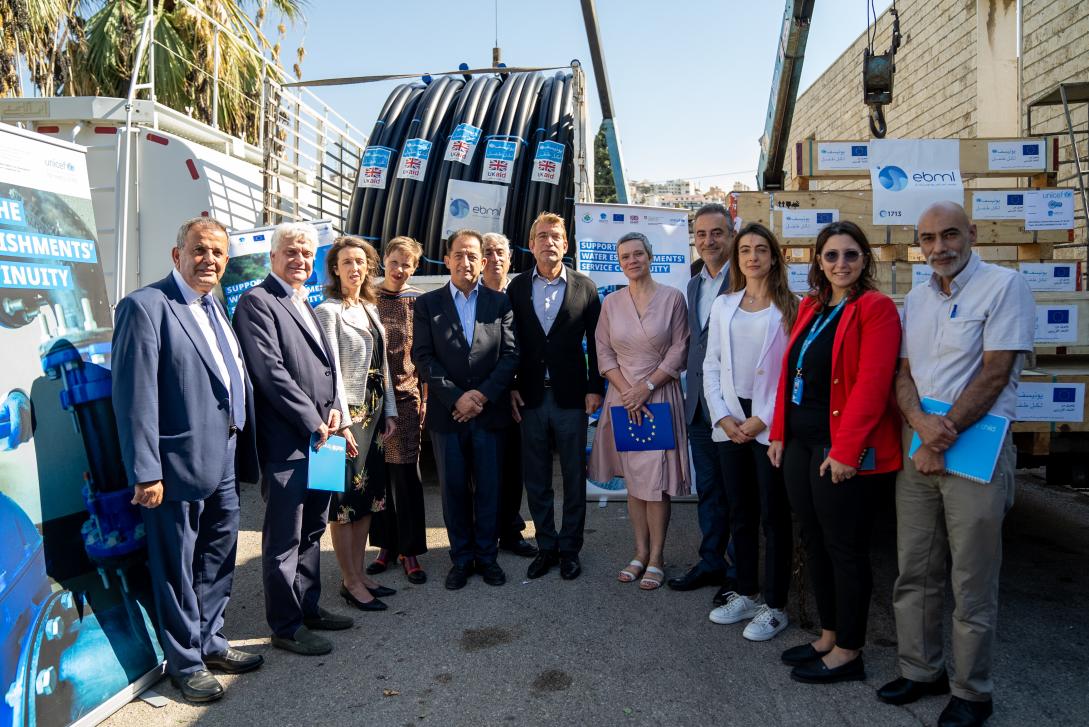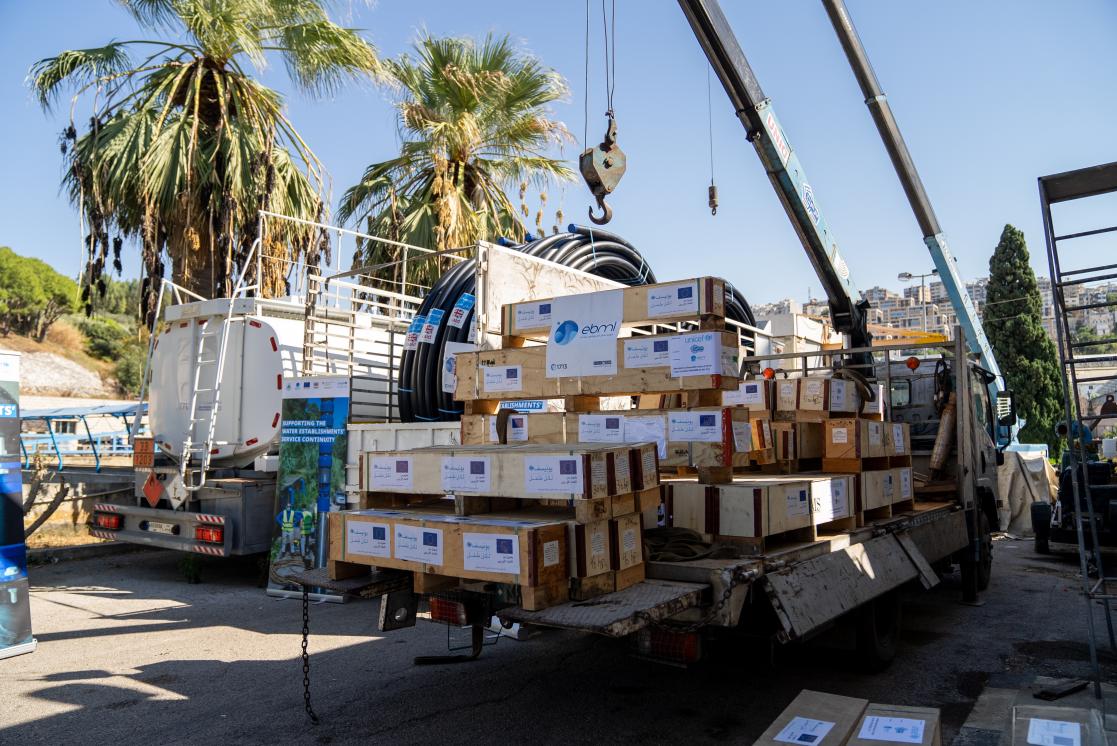Essential water services must be safeguarded as they deliver lifesaving support to families and children

The forced displacement from various regions across Lebanon has severely strained the country's water systems and services. At least 28 water facilities have been damaged by the continued bombardments affecting water supply to more than 360,000 people, primarily in the south of the country. This surge in demand has placed immense pressure on water establishments to keep systems operational, maintain adequate water services, and meet the growing need for additional water supplies to support the hundreds of thousands of families and children in shelters.
To ensure the continuity and safety of water services for communities, whether in collective shelters or households, UNICEF, through the funding support of the European Union, United Kingdom, and Swiss governments, handed over essential supplies to the Ministry of Energy and Water to strengthen the water establishments capacity for rapid emergency repairs.
Equipment including 95 pumping pumps, motors, and pump control systems were supplied along with 18 tons of gas chlorine and 24 km of pipes. These supplies will support Beirut and Mount Lebanon Water Establishment (BMLWE) to repair damaged water networks, support water treatment processes, ensure safe and clean water, prevent the spread of waterborne diseases, and reduce water losses and improve access to reliable water supplies for communities affected by the ongoing hostilities.

© European Union, 2024
Minister of Energy and Water Dr. Walid Fayyad said: “the ongoing hostilities have inflicted severe damage on Lebanon’s essential services, leaving hundreds of thousands without access to safe water and electricity. With the support of our international partners, we are working tirelessly to restore these lifelines and protect the health and dignity of all our people, especially the displaced. This is a critical moment for Lebanon, and we urgently call for a ceasefire to bring an end to the suffering and destruction.”
Sandra De Waele, EU ambassador to Lebanon said: “The supplies we and other donors are providing today to the Beirut Mount Lebanon Water Establishment will help it meet the higher demand for water, in areas hosting a large number of displaced people. There are too many civilian casualties in this conflict, too many displaced, and too much damage to civilian infrastructure. The European Union continues to call for an immediate ceasefire. Only a ceasefire can put an end to this cycle of violence and to this suffering.”
The UK’s Charge D’Affaires Victoria Dunne said: “In response to the significant humanitarian needs in Lebanon, the UK has announced £15M in urgent aid, which includes the vital support we are seeing today to repair damaged water networks. This will help ensure continued access to safe and clean water for communities affected by the current escalation. The rising civilian death toll is intolerable, and we are gravely concerned about the increasing number of displaced individuals. The UK continues to call for an immediate ceasefire and a diplomatic solution to the ongoing conflict.’’
Swiss Head of Cooperation, Katharina Häberli said: “In an emergency situation as we face it today in Lebanon, we always have two options: to bring water in trucks or to distribute bottled water, both very expensive options. Or we can together with the national actors work hard to keep the public water system running and provide affordable water to all. We from the Swiss Development Agency prefer the second option, as it is more sustainable and less costly. It provides water now in the crisis and is at the same time an investment into the future of Lebanon. We thank the Water Establishments of Lebanon and UNICEF for their efforts.”
“The supplies we are delivering today, with many thanks to our development partners, are part of UNICEF's broader commitment to support Lebanon’s water sector, and our response to the current emergency, ensuring that essential infrastructure remains operational and water safety is prioritized to the displaced families living in collective shelters and in communities,” said UNICEF Lebanon Representative Edouard Beigbeder. “Access to services is becoming more difficult for families given the massive surge in displacement and the disruption to services. In line with international humanitarian law, water infrastructure and essential service providers must be protected as they deliver lifesaving support to families and children. Children are suffering as the world watches these laws be blatantly disregarded.”
